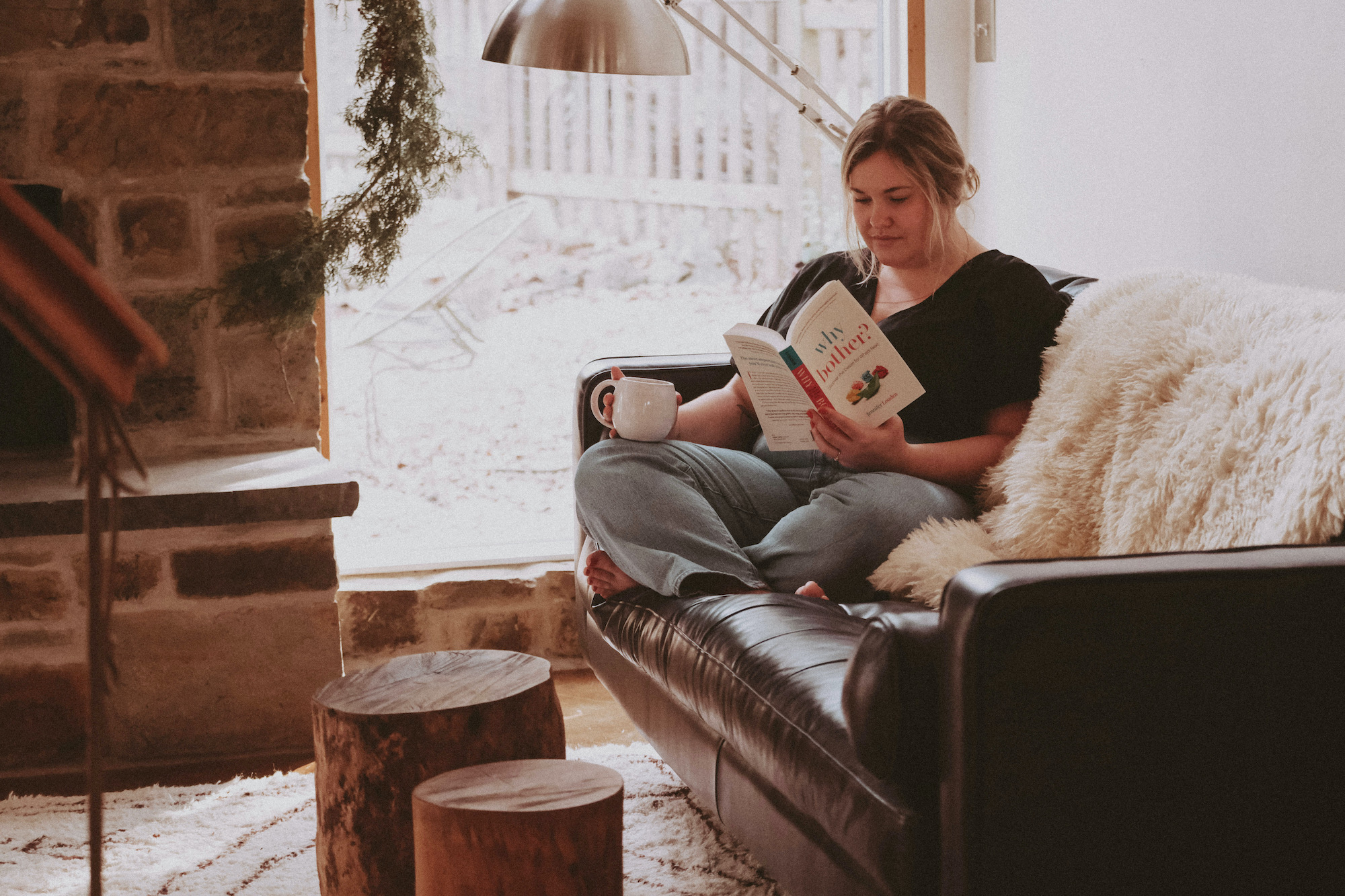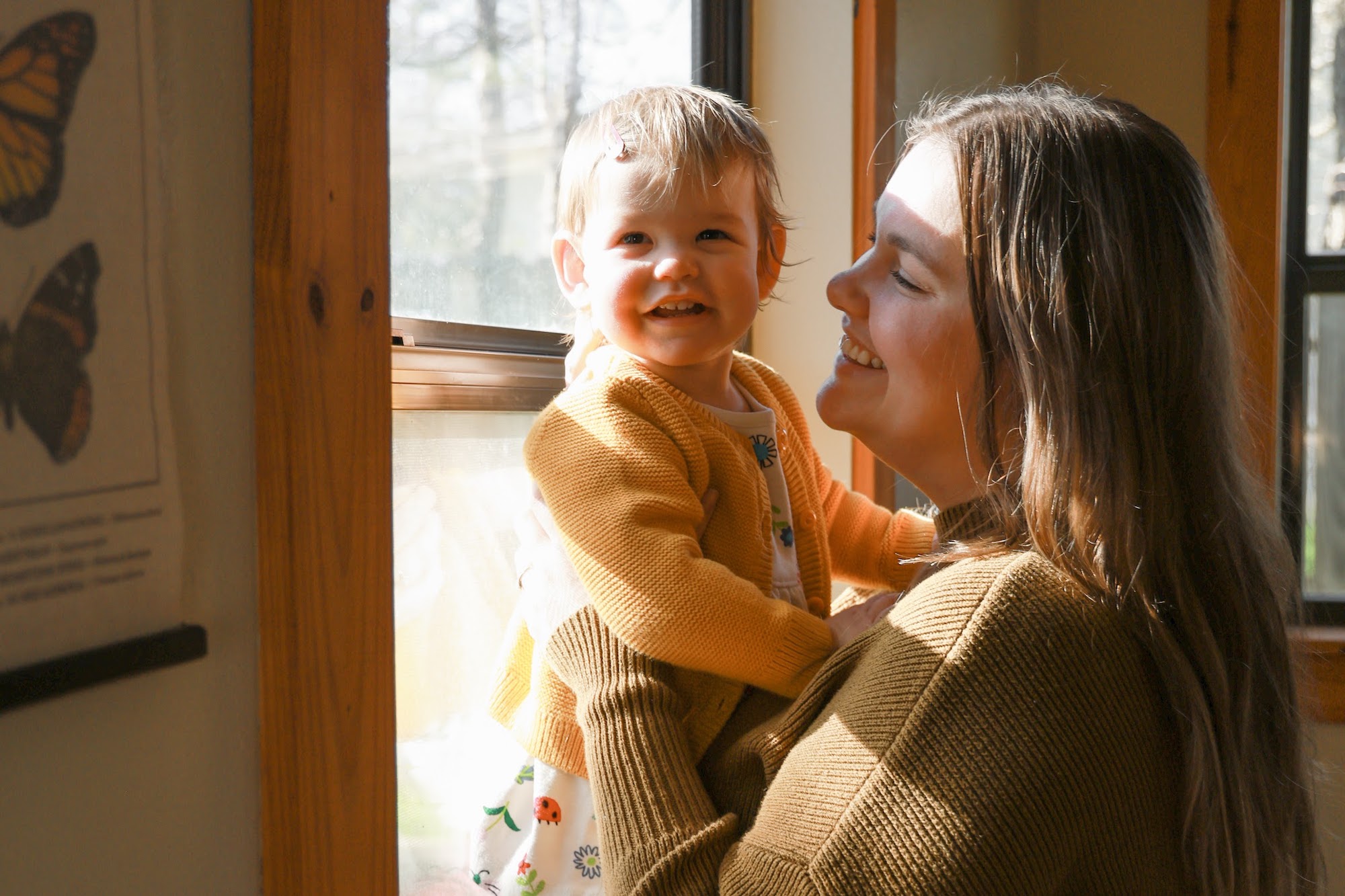I’m a huge admirer of Jennifer Louden’s books, The Women’s Comfort Book and The Women’s Retreat Book, both of which are full of rich and practical guidance on how to care for oneself. They’re warm and inviting and overall gentle. Why Bother? is different however, in a way that I liked immensely. While the message of Why Bother? doesn’t completely deviate from the overarching message of comfort and care in Louden’s work, this book is a little more straightforward, a little more bold, and a lot more impactful.
In a particularly difficult season of life, Louden found herself confused and dissatisfied. This question of Why Bother? became revolutionary for her. Why do we choose to bother about life at all? How do we choose which things to bother about, and how do we hold those desires to us when feelings, circumstances, and crises get in the way? Louden offers readers her six-stage discovery of how to engage with your personal bother. Why Bother? is an invitation to discover your true desire and allow that desire to propel you into the next beautiful stage of your life.

Separating Mood from Desire
At the core of this question is a search for desire. Louden wants readers to connect with their desires, the deepest longings that shape their lives and move them forward. What you choose to bother about is what propels you forward in life when you get stuck. I was challenged by her assertion that it is necessary to separate your mood from your desire. Louden makes a strong case for connecting deeply with your desire, while separating your true desire from how you are feeling in the moment. Louden writes,
“Responding to desire means listening to how desire is calling you rather than asking, “Do I feel like it?” Our moods are influenced by what we are thinking, what we ate for lunch, how much stress we’re experiencing, and a ton of unconscious processes…If we let our moods dictate our lives, we get lost in our stories and feelings, create more of the “same old, same old,” or rely solely on effort and willpower to move forward, which is exhausting. Moods are as changeable as the weather and not a reliable criteria to base your life on.”
Desire and feeling are not the same thing. This is great news for me. Because a lot of the time, my moods and my desires do not at all align, and if I were always guided by my moods, I would never make any progressive movement on the path to what truly matters to me. In seasons where I’ve allowed myself to be guided by my moods, I inevitably become disappointed with the destination my moods have pulled me to—usually, the couch. I’ve learned that, for me, it’s best to keep my true desires front and center in my line of vision, keeping to the course even when my moods try to pull me elsewhere. The desire sticks around, but the mood always passes.

Don’t Be Afraid of a Cliché
One of my favorite passages in Why Bother? is on our hesitation to explore desires we perceive as popular or cliché. I have certainly found myself ignoring hints toward my desires because I didn’t want to be just like everybody else. I hate hate hate the idea of being a cliché. But this fear is an illusion.
There was a time in my life when I stifled the desire to write because I didn’t want to be just like all the other homeschooled girls in my life. It seemed that every girl I knew wanted to be a writer some day. It’s only logical that homeschooling would create an atmosphere that produces all sorts of artists, including writers. Homeschooled kids generally have a lot more time and quietness to reflect on the world and hone artistic skills; not to mention the fact that homeschoolers tend to read significantly more than the average kid, and the undeniable correlation between readers and writers. It seemed like every girl who looked like me, being raised like me, wanted to be a writer. I hated the thought of being one of many. A cliché.
Thankfully, my desire to write was powerful enough to compel me to shed this kind of hindering thinking and embrace this part of my identity regardless of its popularity in my small world. Louden writes, “Clichés are meaningless. Experiments and wonder and self-trust and choosing are what signifies. When you feel like a cliché, the wisest response is to ask, What do I want to try next? Navigate by desire.” I hope you choose to navigate by desire instead of navigating by something like fear of the cliché. Your journey depends on it.
Thanks for reading about my book pick for week 2 of my series on Dreaming. For weekly email updates about what’s new on the blog, join my email newsletter below.
Photos by Kara Buse.





